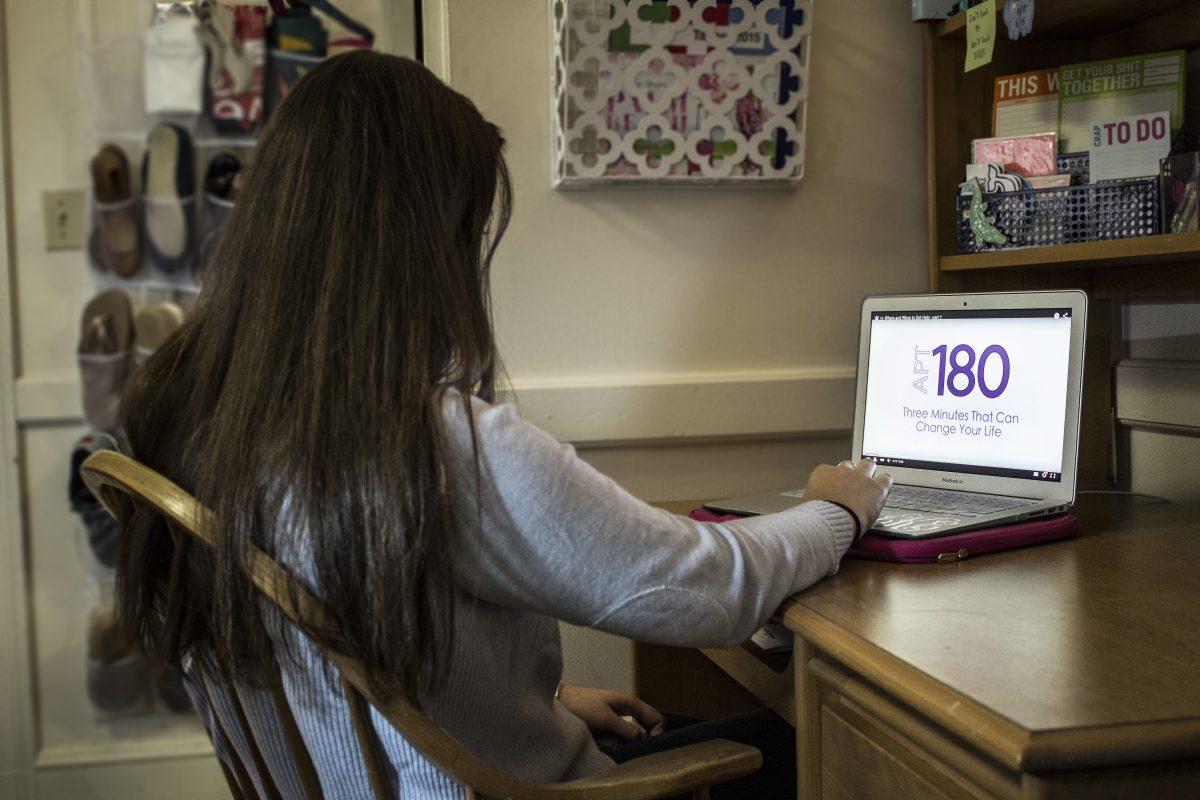The Academic Peer Tutors (APTs) released the first two videos in their APT 180 project miniseries this past week. The APT 180 project consists of three-minute videos, which aim to provide students with study tips and important academic information.
The APT program, which has existed for more than twenty years, is dedicated to helping students reach their academic goals. APTs hold evening workshops in residence halls that cover a variety of topics including study tips, time management and procrastination tips. However, many students are unable to attend these workshops due to other time commitments.
Roberta Schotka, director of the programs at the Pforzheimer Learning & Teaching Center (PLTC), explained that through these three- minute videos the APT 180 project will give students quick, practical and hands-on tips that they can use to achieve their academic goals.
“The APT 180 addresses quick tips for students that will be helpful for them on the spot and also might interest them in pursuing longer conversations with their APT so that they can benefit and get more information,” Schotka explained.
Schotka stressed the importance of reshaping the program so that the information delivered by the APTs is more accessible. The APT 180 project improves the program’s online presence to mirror student preferences for online information.
“To keep the program relevant, we need to ask what are the dynamics of students now and how do we tap into their needs and deliver something in a format that makes sense for students?” Schotka said. “Since our students are spending a lot of time online looking for information it is nice to have our information accessible online.”
The Tower Court East APT, Kim Asenbeck ’17, explained the importance of the APT 180.
“The APT 180 allows the APTs to expand our reach beyond these workshops, giving us the potential to deliver similar content in an on-demand way,” Asenbeck expressed. “We recognize that students’ schedules may not allow them to engage with our workshop curriculum, so we’re considering the APT 180 videos to be another means through which to provide them with skills and tips to empower students to succeed.”
These videos will supplement, but not replace, the workshops, highlighting key information about various topics and encouraging students to seek out their APT and other resources available at the PLTC.
Topics for this semester’s miniseries include an introduction to the academic resources and support on campus, reading strategies, tips for writing a paper and exam preparation strategies. APTs were given opportunities to script, create a storyboard, act in and edit the videos.
McAfee APT Nisreen Abo-Sido ’18 helped write the script for the first video on academic resources and another film focused on exam preparation. Abo-Sido and the other writers wanted to provide the most important information and engage students. For one video, Abo- Sido and her writers were able to create a storyline for the exam preparation video that will simulate the process of self scheduled and fixed exams.
“In the exam preparation video we wanted to ease the worry of the first year student,” Abo-Sido said. “We will distinguish self-scheduled exams from scheduled exams and also simulate what it looks like on the day of exam. We will also cover timing and study tips.”
The APTs collaborated with Jarlath Waldron and Jason Estey of the Library and Technology Services (LTS) to film and edit the videos. They also worked with the Communications and Public Affairs departments to help create the closed YouTube channel and publicize the project on campus by posting announcements on monitors and sending an email to all students by class year.
Schotka chose the title APT 180 for several reasons.
“First of all, 180 seconds equal three minutes and all these videos are close to three minutes,” Schotka said. “More importantly, if you think about a circle which is 360 degrees, half of that is 180 degrees. When people say they did a complete turn around, to me that means they are going right back to where they started and I don’t want that to happen. We want them to take the strength of what they have now and improve, increase and enhance that so we are looking at a 180 degree shift in what they are doing.”
Asenbeck was excited about the release of the first segment.
“Now that we’ve seen the first video come together, it’s quite rewarding to be able to look at the first finished product,” Asenbeck explained.
Alicia Olivo ’19 found the videos helpful. “I think the APT 180 project is a brilliant idea to reach out and offer help to the busy student,” Olivo said. “The videos are very informative and easy to follow, and well- made with peppy background music and nice use of cinematography.”
Rosalind Liang ’19 also effective the videos were.
“I think the clips are a great way to send a lot of information in a short period of time,” Liang said. “They are easy to follow and more efficient than a bunch of printed handouts.”
Additional videos are scheduled to be released in the next two months and will be compiled in a video library. Other videos will include other student resources and organizations that relate to the video content. For instance, the writing tutors at the PLTC plan to be featured in the video pertaining to how to write an academic paper.
With the launch of the first two videos, Schotka and the APTs are excited to share the other segments in their miniseries and are looking forward to hearing feedback and ways to improve this project.
“I would love student to watch the videos and to give us feedback,” Schotka expressed. “Are they effective? Did they provide information that was timely and useful? We welcome ideas students have on how we can enhance the APT program.”







